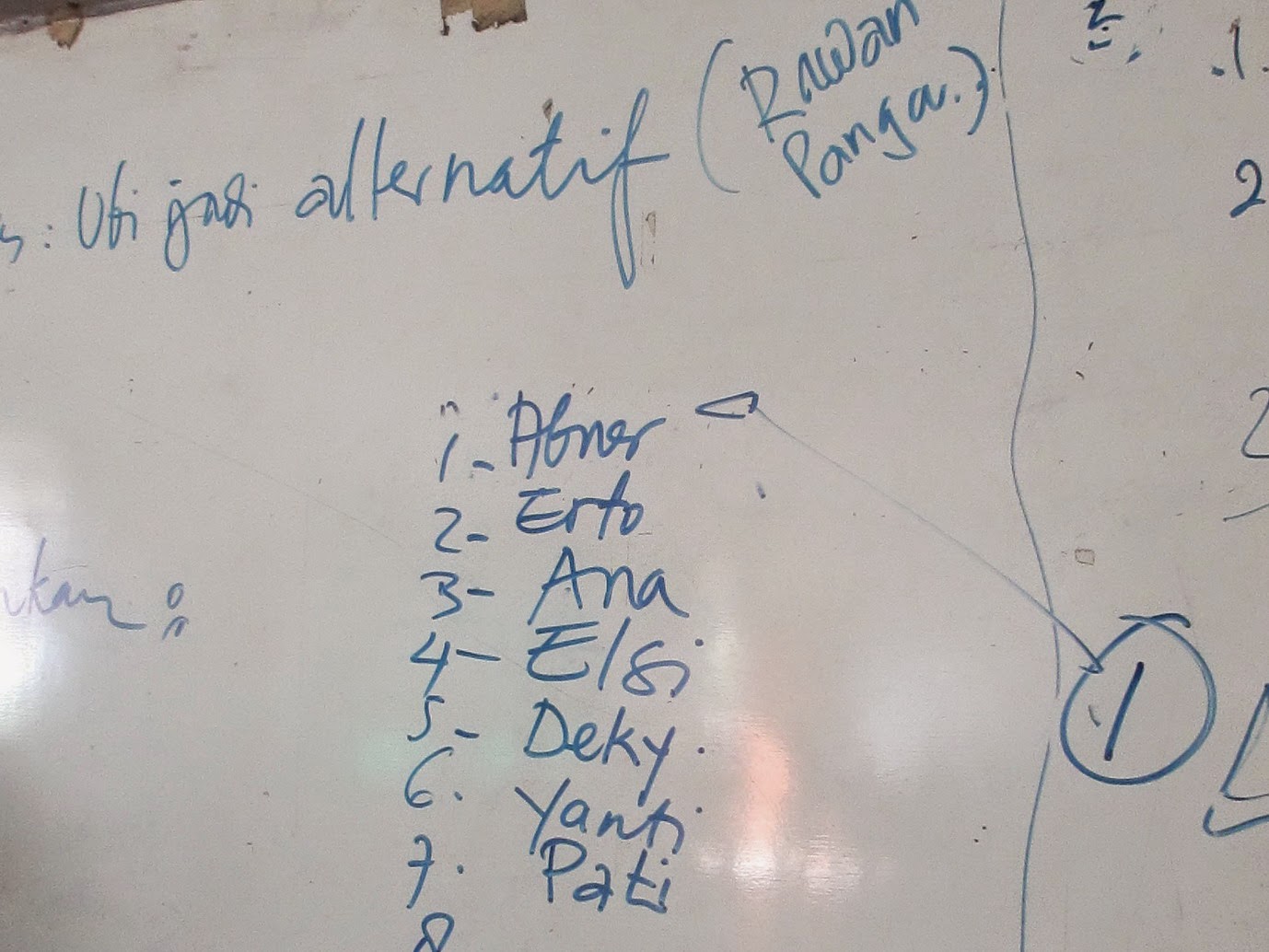Social Analysis
A Way to
Observe Sumba
As a social being living in social interaction, we can not be separated from social
problems. There
are a lot of issues around
us, but we often never realize that there are actually problems, even it
becomes worse when we
know problems definitely but we do not know how to handle and solve them.
Start from such a condition above, Stube-HEMAT Sumba held Social
Analysis training on 09 – 11 May 2014. It took place in Sumba Christian Church
Synod Hall, with Octavianus Landi as the keynote speaker. The training was
attended by students from various elements of campus, both internal and
external organization. This three-days training was quite tiring, but participants felt happy because the
materials gave them new insight towards many issues around them.
Understanding towards problems,
next the participants collected any issues and determined them into four most attractive ones to be their further group discussions and be a problem
that would be advocated. The four issues covered:
- Inpres Market: ‘Business behind Inpres Market Booth Distribution’
- Farmers in Mauliru: ‘Being Labors in Their Own Land’
- Scavenger Kids: ‘Keeping Book, Scavenging Trash’
- Farmers in Lewa: ‘Trapped by debt bondage system’
Business behind market booth came out from one assumption on a conspiracy in the booth distribution in Waingapu Inpres Market
causing muddle placement
of merchants. While in
Mauliru there is a
phenomenon when farmers became labours in their own farmland as they mortgaged their farmland to the
middlemen. Further, todays many children became scavengers in Waingapu, even some of
them are school-aged, so it is necessary to find the cause and solution. Next,
many farmers in Lewa were continuously
trapped in debt bondage system,
called Ijon, starting from the beginning process of
tillage until the harvesting time. Their debt were paid by their harvest, even 100% debt interest was burdensome
to the farmers.
Before doing activity in the real field, the participants of each group
were equipped with a variety of questions that can be used to collect data
and important information for advocacy. Thus, they gathered once more with the trainer to consolidate their
steps to make sure everything in the field. (ABR) ***

















Comments
Post a Comment